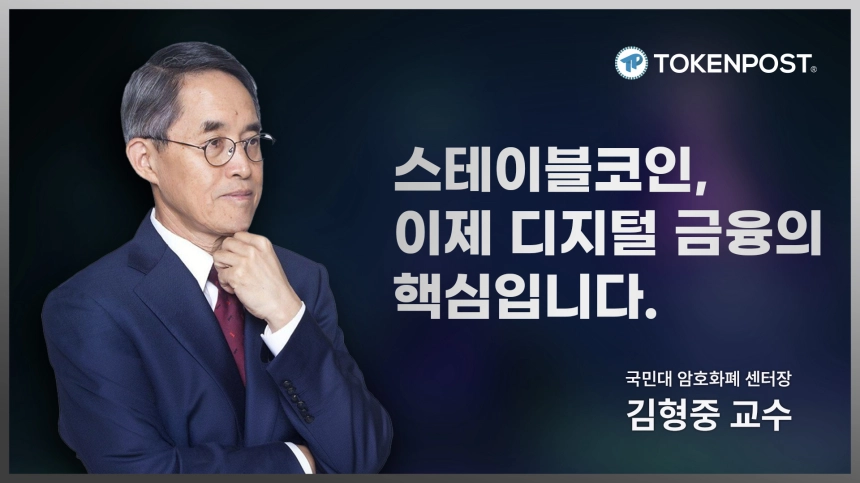TokenPost
Hello. This is the TokenPost podcast. Today, we will look at an editorial published on TokenPost on July 1st. This is about the competition for hegemony in the digital age, especially the concept of clearing sovereignty. And we want to take a deeper look at how this concept can be connected to our K-content.
Host
Yes, it's an interesting topic. Just as oil was in the past, the analysis suggests that stablecoins could now become the new core of the global economic order.
TokenPost
That's right. So the editorial first looked at past examples. How the United States created the Petrodollar system in the 1970s
Host
Ah yes, essentially making it so that all oil trades are done in dollars, making it impossible to buy oil without going through the US financial system.
TokenPost
That's right. Through this, the US gained enormous economic hegemony, or what you might call clearing sovereignty. Because all final settlements go through the US dollar system?
Host
But now the core of the editorial seems to be pointing out that this concept of clearing sovereignty is moving into the digital age. And that stablecoins are standing at the center of this new order.
TokenPost
Yes, that's right. The US is already moving. The GENIUS Act mentioned in the editorial is a prime example. It aims to incorporate stablecoins into the institutional framework by mandating US Treasury holdings as a condition of issuance and placing them under the Fed's supervision.
Host
That's right. This can clearly be seen as a strategy to maintain dollar hegemony even in the digital age.
TokenPost
In other words, an attempt to further strengthen the existing dollar influence through digital dollars or dollar-pegged stablecoins.
Host
But it's important that this is not just being driven by nations. The editorial also pays attention to the movements of private companies like Tether, the world's largest stablecoin issuer.
TokenPost
You mean Tether's development of its own blockchain.
Host
By creating their own chains like Plasma or Stable, they now want to directly control everything from fees to payments. Previously, they relied on external networks like Ethereum, but now it looks like an attempt to create their own digital clearing network, or a digital empire, so to speak.
TokenPost
So it's an era where nations and large private companies are simultaneously competing to design the structure of digital finance. It's a battle over who sets the framework.
Host
Exactly. That's the point.
TokenPost
So now an important question arises: what should we do as Koreans? The editorial seems to warn that we shouldn't just follow the technology or be trapped within regulatory frameworks.
Host
Yes, that's right. We could be pushed to the periphery in this new order. The key is who designs this structure. And it's at this point that the editorial focuses on Korea's strength: K-content.
TokenPost
K-content? How is this connected?
Host
Think about it. Our music, dramas, games, and webtoons are already being consumed enormously on global digital platforms. And they're generating revenue. This suggests the potential for it to become more than a cultural phenomenon - a new core resource in the digital economic era, a clearing asset similar to Petro oil in the past.
TokenPost
Wow, that's a really interesting perspective. If we could design a structure where we lead the consumption and digital payment flow of K-content
Host
Yes, exactly. If we can design that structure, it could be an opportunity to create a new kind of monetary order based on Soft Power.
TokenPost
Ah, so instead of just thinking about creating a won-based stablecoin, we should design the final payment route, or clearing network, using K-content as a global asset.
Host
Exactly. If our K-content is distributed on chains created by foreign companies, the fees and added value will likely be captured by them. It's a warning about potentially just doing work that benefits others.
TokenPost
That makes sense.
Host
Furthermore, the editorial cautiously suggests the idea of a unification coin.
TokenPost
A unification coin? What's that?
Host
So, if a situation of future inter-Korean cooperation or reunification were to occur, a neutral digital stablecoin could be a very practical solution for connecting different monetary systems. It's a proposal to keep the possibility open of designing a new economic order together on a transparent and efficient clearing mechanism based on technology, without being dependent on any specific national system.
TokenPost
Ah, that's quite a forward-looking proposal. In the end, the core keeps coming back to design.
Host
While the US is creating its own structure through institutions and Tether through infrastructure, we too should no longer be in a position of following, but become designers of our own framework.
TokenPost
Stablecoins are not just money, but the flow of power itself. We seem to need a shift in this perception.
Host
That's right. So at the end of the editorial, it seems to conclude by throwing out such a question. How can we design the new order of digital finance that is coming, given that we have this truly unique asset called K-content? It's time to seriously contemplate what our own strategy will be to lead this trend. It's a time when we need to think beyond mere technological development.
TokenPost
Yes, we've had an in-depth discussion about a very interesting and important topic of K-content and digital clearing sovereignty. This concludes the TokenPost podcast.
Get news in real-time...Go to TokenPost Telegram
<Copyright ⓒ TokenPost, Unauthorized Reproduction and Redistribution Prohibited>





